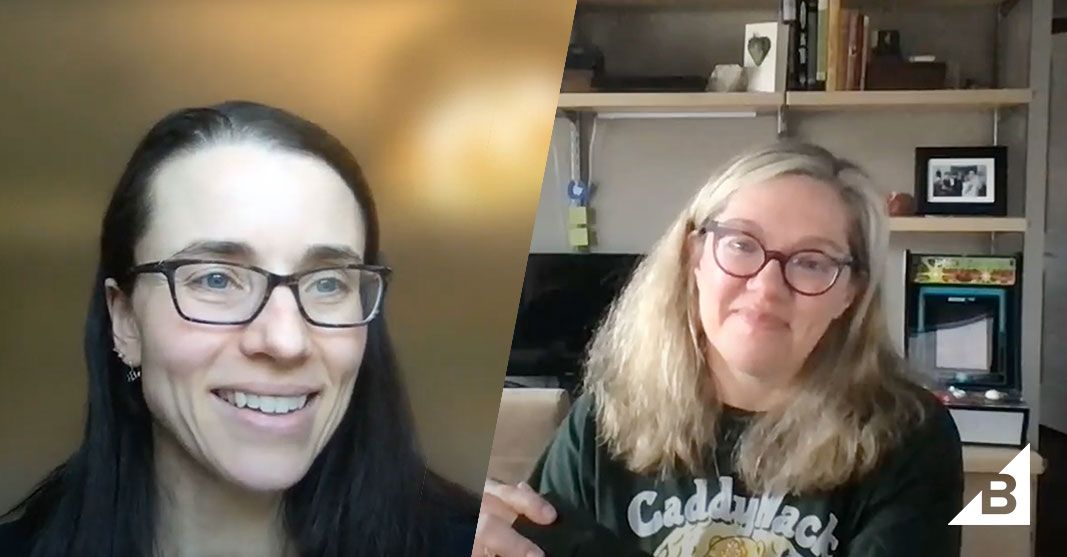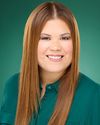Women’s History Month Feature: Meet Judith Dietz
Today, this celebration continues with our latest conversation between our Lead Software Engineer in Pricing, Meg Desko, and our Director of Engineering, Judith Dietz.

We kicked off Women’s History Month with a spotlight on our Pricing Software Development Engineer in Test, Tulasi Anand.
Today, this celebration continues with our latest conversation between our Lead Software Engineer in Pricing, Meg Desko, and our Director of Engineering, Judith Dietz.
Judith entered the Google Meet in style, sporting her Caddyhack Hackathon (a semi-annual event that Judith leads for the Product and Engineering teams) shirt. Her furry loved one, Zoe, also made a special guest appearance as Judith chatted with Meg about her professional experiences.
Still to come:
- We will release our final part of the Women’s History Month series at the end of this month. This interview will highlight one of our female engineers from Sydney, Australia.
Getting to Know Judith
Judith, please tell us a little bit about yourself.
I have been in the software industry for my entire career, primarily with enterprise software companies, but I also spent a good chunk of time working for a defense contractor.
I started my career as a developer and tester then moved into management and have been in management and project management for the majority of my career. I’ll also toss out that I graduated with a Bachelor's degree in Computer Science and Math from Vanderbilt University.
Awesome. What do you like to do for fun?
I spend time with my husband and my animals. I spend a lot of time reading, doing things around the house, and hanging out with friends. I’m trying to travel more these days as well.
What did you want to be when you were 10 years old? Did you want to be a software person?
No. I don't think I knew what that was when I was 10. That was a long time ago.
I wanted to be the first female Supreme Court Justice.
That is an awesome ambition.
Yeah. Somebody else got there first, so I had to find something else.
Besides the reason you just mentioned, why did you choose to go into software engineering?
It wasn't a conscious choice. It was something that was honestly kind of easy for me.
I had the opportunity in high school to take some programming classes. We were programming BASIC on little Apple IIe’s. They had little floppy drives, and you had to boot it on one side of the floppy. Then you could turn the floppy over and have your little program on the other side of the floppy.
When I went to college, I took some Introduction to Computer Science as well as math classes. It's just something that was relatively easy, and I didn't know what I wanted to be when I grew up.
I still don't really know what I want to be when I grow up.
What if any challenges did you face on your road to becoming an engineer?
For the most part, I don't know that I ran into any significant challenges.
I did take a couple of advanced calculus classes when I was an undergraduate, and I ran into a professor who commented that maybe his class was too hard for females. It really irritated me, and I ended up becoming a grader for his class the next year. This professor also got me on the ground floor of a collaboration between Vanderbilt University and Apple, and I supported an advanced classroom as a result.
I was lucky because Vanderbilt University had a great program for helping students find jobs when they graduated. We had companies coming to campus and inviting us to visit them, so from that perspective, I walked away with a handful of offers when I graduated.
Lucky. What made you want to stay in the Tech industry for your whole career?
I've actually thought about leaving twice: once to go to veterinarian school and once to go to nurse practitioner school.
Both times, I ended up not doing it.
Part of it is that I've been doing this [software engineering] for a while, and I'm fairly senior in my career. It's hard to start over again at the bottom and be the newbie.
The other part is I have had the opportunity to work with companies and teams that I really admire and enjoy working with. We get to solve meaningful, difficult problems. I always enjoy that.
I think that's one of the most fun things about being a software engineer: being able to solve problems.
That's one of the things that I enjoyed when I was in school. That's why I like math. You get to solve a problem, and you get to an answer. It's a fun process, and the same is true when you're writing software.
What would you say the best professional advice you've ever received was?
Even though you think you're being clear in your communications, that doesn't mean that the receiver understands what you're saying. A lot of times, the receiver of information (that you're trying to convey) is coming from a different context, a different place, a different set of information.
Communication really is two-way. When I say two-way, I mean that there's a communicator and a receiver, and you both have to be on the same page or get to the same page to make that connection and to be sure that everybody is hearing the same.
That was a big light bulb for me at a moment when I thought that when I said something, everybody would understand it, understand where I was coming from, and it would make sense.
Honoring Women’s History Month
This year’s theme is Women Providing Healing, Promoting Hope. What excites you most about this theme?
On one hand, it resonates. I've been called mom at work at multiple companies because there is this natural nurturing and caring about my team and the folks I'm working with, as well as the product and the customer that we're trying to solve problems for.
On the flip side, I think, “Why is it always the women? Why isn’t it a more shared responsibility across the team?”
Part of providing hope is to lift women up. Can you describe some ways that you do this in your professional life?
I don't focus on just lifting women up. It's about lifting everyone up to me.
But if there's a woman on our team who is not paid equally with her peers, it is up to me to correct that situation. However, it's up to me to correct that situation, regardless of the person.
Life at BigCommerce
How long have you worked at BigCommerce?
It'll be two years in the middle of June.
What convinced you to join the BigCommerce Engineering team?
A good friend of mine was actually the one that encouraged me to apply to the company. His thoughts and perspective on the company, the opportunity, and getting to meet my manager were big parts of it. I was really intrigued by the manager that I was going to be reporting to, so he had a big part to play.
One of the things I've been really pleased with, as of late, is our CEO’s [Brent Bellm] care and concern about the employees of the company, especially our Ukrainian peers. He is allocating all the resources that we can as a company to help our fellow coworkers.
What does a typical day look like for you?
I spend a lot of time in meetings–different kinds of meetings from thinking about things for organization and process and how we operate to specific product requirements and plans.
A lot of what I do is connecting pieces and working across teams for a variety of initiatives.
What makes you get excited to go into all those meetings every day?
Sometimes, I'm not.
But the meetings that I enjoy the most are when we are brainstorming about solutions and making decisions. I really enjoy solving problems and working with smart people to come up with different ideas. Then narrowing down and figuring out that right now, with the information that we know, this is what we're going to try to do.
I really enjoy that.
How did you make that transition from an individual contributor to management? How do you feel satisfied as a leader?
It can be more difficult when you're in a leadership role to know where you're succeeding and what positive influence or contribution you're making.
Part of it is recognizing that the team is making progress, their morale is good, and they don't feel like they have significant roadblocks that are preventing them from doing the things that they need to do.
Seeing an initiative come to fruition, and knowing people are making that a part of their everyday process can be gratifying as well.
What advice would you give to young women who are about to enter the workforce?
Don't let other people make you feel less than you are. Stand up for yourself. Bring all that you have.
Don't be afraid to ask questions. If I ask a question that uncovers something that would have been a ball dropped through the cracks, that’s how I know I’m making a difference.
Maybe that's my biggest piece of advice. Don't be afraid to ask questions.
In your opinion, why is it more important than ever for women to consider engineering for their careers?
The world is more and more dependent on software and automation, and knowing how all of that works not only gives you opportunity for employment, but gives you more insight into what's going on in our world today. There are a lot of problems that we've created because of the software and the automation, which will need new and innovative solutions.
It's also, to be honest, one of the highest paying jobs with the least amount of education required out there.
What advice would you give to an aspiring engineer?
Find something that interests you, whatever aspect that is. I think that’s a great place to start, and if you don't know, just try something.
It doesn't have to be a specific problem. It could just be problems like making a UI [user interface] usable, so that it's easy and intuitive for people to do what they are expected to do; solving some highly complex distributed network latency issue, or working in the healthcare industry. There's so much software in the healthcare industry and so many things that could make a doctor's or a nurse practitioner's jobs easier.
Interested in BigCommerce Engineering? See our open roles.
Related Interview
International Women’s Day Spotlight: Meet Tulasi Anand

